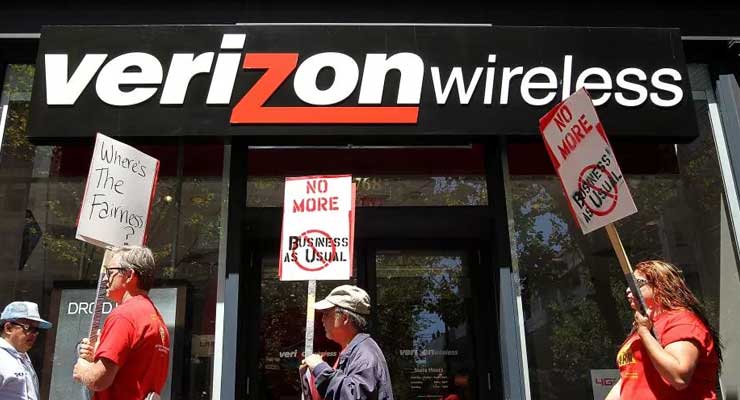
About 45,000 Verizon workers went on strike last month, making it the largest strike in the U.S. since the last Verizon strike in 2011. Their chief complaints include the outsourcing of jobs, job relocations, healthcare coverage and pay. Why should we care about this strike?
As U.S. President Rutherford B. Hayes said, “the whole fabric of society rests upon labor.” Although Verizon’s landline business has declined, profits are soaring—in fact, Verizon reported an $8.9 billion operating profit in 2015. Yet Verizon continues to cut costs.
As I describe in The New Confessions of an Economic Hit Man, today’s economic hit men (EHMs) seek the cheapest labor pools, accessible resources, and largest markets. They are ruthless in their approach. We must protect the workers’ right to walk out, so their voices can be heard by the huge corporations that employ them. If you are facing oppression, you have the right to resist it. These corporations make billions but they expect their employees to do more with less.
Verizon invested money in training thousands of employees in case of a strike, rather than investing the money in other areas of the company. Customers want high-speed FiOS (bundled Internet access, telephone, and TV service that operates over a fiber-optic communications network), but Verizon says it’s not expanding it. FiOS is often concentrated in affluent areas. The workers complain that Verizon has ignored landline maintenance needs in poor and rural areas that still rely on landlines and FiOS.
Through all of this, Verizon is taking money from U.S. taxpayers. During the 2008-2013 period the company received a tax refund of $732 million from the IRS with a negative income tax rate of minus 2 percent. Verizon stashed $1.8 billion in offshore tax havens in 2012 alone. All while the company’s executives are rewarded handsomely. Verizon CEO Lowell McAdam pulled in $18 million in 2015.
We encourage this EHM-driven system because the corporatocracy has convinced us that (in Nobel Prize winner Milton Friedman’s infamous words) “the only responsibility of business is to maximize profits, regardless of the social and environmental costs.” During the past four decades this misdirected idea has contributed to social malaise like the one we’re seeing with Verizon.
But we the people are the ones with the real power. The marketplace is a democracy if we just use it as such. The individual—you—has more power now than at any time in history. We have the ability—the responsibility—to tell executives that we support workers’ rights through emails, social media, and other means. Isn’t it time to encourage policies that ensure fair, living, and equitable compensation to the people who actually provide our goods and services?
Leave a Reply